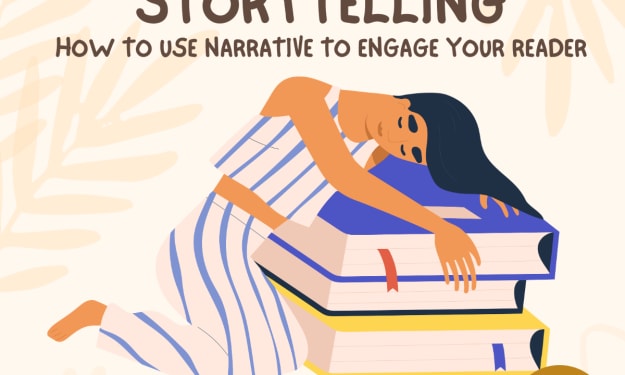Research and Writing
How to Incorporate Facts and Figures into Your Work

Just because when writing your novel you're doing some creative writing, doesn't mean that you get to make up everything in your novel from imagination. Sure if it's part of your world like electricity being made from trapped fairies in lamps, but if you're not writing a fantasy novel - this is a little out of place.
Incorporating well-researched facts and figures into your novel can enhance the authenticity of your work. There's nothing worse than ripping your reader out of the story because they have to look something up just to find out it isn't true.
The Power of Research
If you're not sure why you need to do research for your novel look no further than my favorite example - my sister. My sister has a degree in History with a specialization in the Tudors.
She reads any historical fiction about this time that she can get her hands on.
There is nothing worse than seeing her so excited to sit down with a new book, get cozy in her chair, and have a drink and a new candle just for the occasion beside her - just to hear her sounds of frustration before inevitably you have to duck when you come around the corner to check on her in fear of flying books. (Yes, I did once forget to duck.)
Don't get your facts wrong enough to have your books sent flying across the room at younger sisters. Ouch!
Choosing Reliable Sources
Sorry to bring you back to school, but just because you see it on the internet doesn't make it true. Don't take the first internet result as a fact. Journals, reputable websites, books, and first-hand accounts are your best bet at getting the most accurate information.
Understand Your Stories Context
This one will depend on what it is you need to focus on based on what it is you are writing. Be it a certain period, a scientific concept, or a cultural practice take the time to understand what parts of these you need for your story with relevant details. Immerse yourself in whatever it is you want to get a better understanding of - I'm not saying if your book is set in France that you should hop on a plane and go there (but if you can afford it go for it) instead you should talk to people you have lived or traveled there, watch documentaries, buy a baguette and a bottle of french wine and watch some french movies. No one said research has to be boring.
Blending Fact and Fiction
While researching and adding in facts will make your story more authentic, it's important to keep a balance between incorporating facts and maintaining that this is a work of creative imagination and not a French travel guide. Don't dump everything you have learned onto your reader, but instead weave the information in as organically as you can in your setting, descriptions, and even dialogue.
Balancing Show and Tell
Yep, here it is again. I'll keep telling you that this phrase is never going to go away as long as you are a writer.
There are plenty of times to nerd out and show off everything you have learned and in some cases, you can do this organically through dialogue or in your exposition. Otherwise, it's better to show off through actions, thoughts, and experiences your characters have in a way that is creative and engaging for the reader.
Maintain Narrative Flow
If you are going to include a whole page of science jargon that sounds as if you are reciting a textbook instead of writing a work of fiction - sure you may have the odd few who will be fascinated with this - but for the most part, you'll probably just end up boring your reader. They'll either skip this section altogether missing information that may be crucial to the story down the road or worse. They'll put your book down and then never get back to it earning that horrible horrible tag on GoodReads - DNF.
Include your facts and feel free to nerd out when the story calls for it, but try not to overwhelm the reader with a history lesson while you're at it.
---
Best of luck and keep reading, writing, and researching.
With love,
B.K. xo xo
This story was originally posted on Medium.
*If you've liked what you read you can show your support by subscribing, pledging your support, or leaving me a tip that directly supports and aids me as a writer.
About the Creator
Elise L. Blake
Elise is a full-time writing coach and novelist. Blake is a recent college graduate from Southern New Hampshire University where she earned her BA in Creative Writing.
Reader insights
Outstanding
Excellent work. Looking forward to reading more!
Top insights
Compelling and original writing
Creative use of language & vocab
Easy to read and follow
Well-structured & engaging content
Excellent storytelling
Original narrative & well developed characters
Expert insights and opinions
Arguments were carefully researched and presented
Eye opening
Niche topic & fresh perspectives
On-point and relevant
Writing reflected the title & theme






Comments (1)
That's actually useful! I wish I had such tools during my college years. Even when I had to write a dissertation, I decided to work with https://phdify.com to help me with that, and these specialists provided me with the best work. And to be honest, I still think it's the best option if you don't want to deal with all the research yourself.